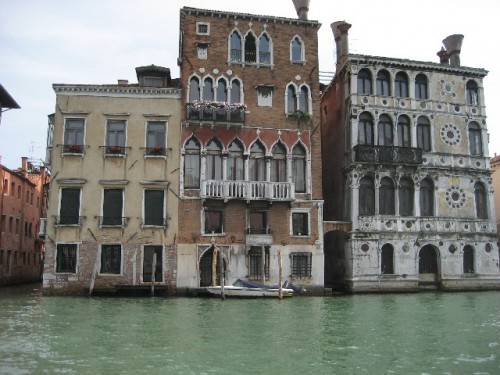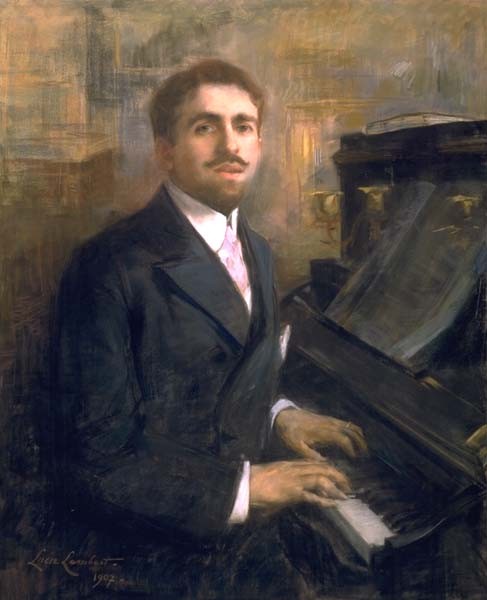Anna Caterina Antonacci at Lincoln Center
A Great Singer at Alice Tully Hall
By: Susan Hall - Apr 10, 2012
Anna Caterina Antonacci, soprano
Lincoln Center Presents Great Performers
Donald Sulzen, piano
Fauré: Cinq mélodies "de Venise"; L'horizon chimérique
Hahn: Selections from Etudes latines and Venezia
Cilea: Serenata; Nel ridestarmi; Non ti voglio amar
Masagni: La tua stella; Serenata
Tosti: Quattro canzoni d'Amaranta
Respighi: Selections from Cinque canti all’antica; Sopra un'aria antica; Nebbie
Refice: Ombra di nube
Encores:
GIMÉNEZ: La tempranica
TOSTI: Marechiare
FAURÉ: Au bord de l’eau
Alice Tully Hall, Starr Theater
April 8, 2012
In a highly anticipated recital, Anna Caterina Antonacci and her accompanist and collaborator Donald Sulzen delivered in spades. The stage at Alice Tully Hall is spare, but walled in a warm, burnished gold-brown wood, which sent out the incomparable voice of one of the world's great soprano-mezzos.
Antonacci sweeps onto the stage and nestles into the sounding board of the piano. She listens when she is not singing. She is about the message not the messenger. When she sings she stands tall, secure in her technical base. From there, she goes where she wills with the words and music. Antonacci is passionate and she is fun. Donald Sulzen, collaborating, punctuated, decorated, but mostly held with his tones the richly orgiastic voice of the singer.
Simply dressed in a softly draped black gown, with a sheer short jacket and a cluster of rhinestones dropping like sparkles of a waterfall from her swooping neckline, the focus is on her delivery of the composer's music and the intent of the words. She looked a classic, sang from firm vocal traditions, and succumbed or rebelled within the clear frame of the music.
With Mandoline in her opening Faure song cycle, Antonacci began the evening by seducing her audience with elegant yet worldly tones. Seamlessly transferring to a softer lyric mood, she followed with En sourdine, and that is when we saw Antonacci as an artist of many vocal personalities. As she sang the next song of the cycle, Green, she showed what a consummate singer-actor she is. By the end of the first Faure cycle, we knew she was going to live up to her advance billing: she is extraordinary.
If Antonacci stretches songs, she still acknowledges their constraints: no oddly extended pauses here. Everything feels as though it is in time, although it is dramatically presented. The lavish, direct, morally ambitious romantic style that begins with Rossini, a composer who wrote much of the music Antonacci sings for the diva Isabella Colbran. If reports of her voice are accurate, Antonacci and Colbran have a lot in common. an embrace three octaves, great agility, beauty of tone and the ability to sustain phrases.
When Antonacci talks a phrase, it is still musical. Che peca has the repeated phrase 'che peca' (what a shame). Antonacci spit it out. It is clear that she has the heart of a tiger, a phrase that she jubilantly exclaimed at the end of each stanza of Hahn's Warning.
The Antonacci style is never over the top. Mood and atmosphere are carried across multiple scenes and numbers. Antonacci live arouses hopes that engage heart and mind.
The program revealed her voice of many colors. from lush French songs to the more dramatic Italian repertoire of the program’s second half. From the first song, about singers of serenades whispering faded vows, she turned on a dime to sing about a softer twilight falling, solemn shadows creeping by, and the promise of nightingales singing. Only an artist attentive to diction, to the meaning of the words she sings, and the music that is floating them could achieve Antonacci's effect, which is beyond description.
Antonacci’s dramatic coloratura was on full display in the Italian songs. She presents nuance with a vocal brilliance highlighting dramatic complexity. The melodic freshness of the French songs yields to all to human emotions of fear, guilt and personal appetites. Emotion doubled with each song. Then she would retreat into her listening as her partner at the piano offered up his own interpretations, syncing so well with hers. They both give psychological nuance.
To fully appreciate Antonacci, she must be heard live. Sadly we do not expect her soon at the Metropolitan Opera. Her infinite variety comes from such a technically solid base and a rich and varied voice that you can see why Rossini fell so hard for Colbran.
One only hopes that Antonacci does not suffer Colbran's fate: banishment in her final years. Antonacci is a practical woman who crushes olives barefoot and does not expect her voice to last forever so this is unlikely. Instead, try to catch her as Carmen at the Opera Bastille in early December.
.




